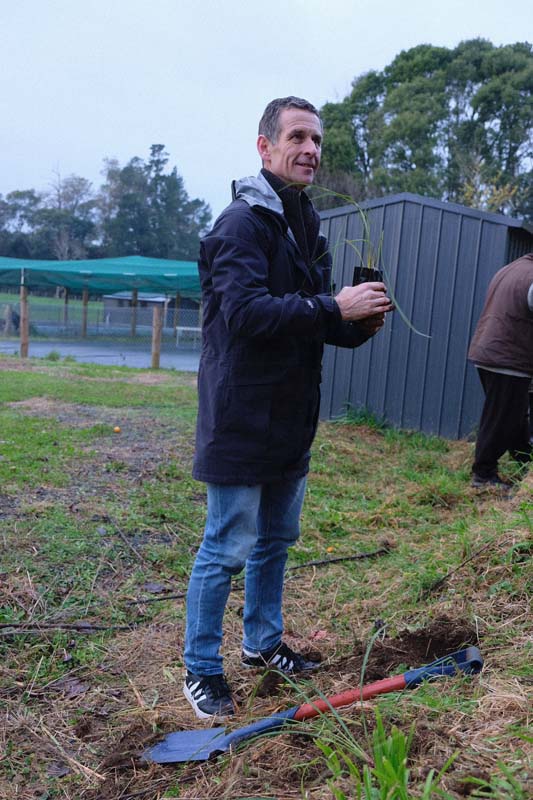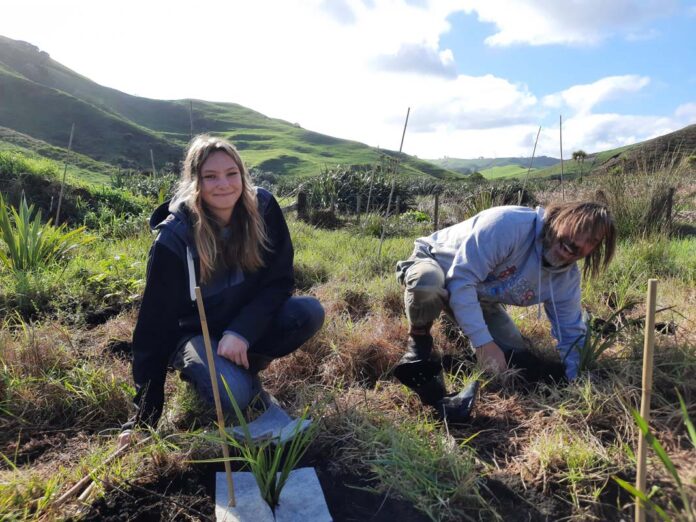Trees for Survival Charitable Trust, has been quietly achieving a phenomenal milestone: more than two million native plants grown and planted by New Zealand school students.
A Rotarian initiated charity, Trees for Survival first began in 1991 with a shade house and a plan to inspire students how to grow and nurture NZ native seedlings and planting them in erosion-prone and at-risk land across Aotearoa, New Zealand.

What began with three schools in Auckland has now grown into a nationwide programme with 216 schools, involving 5,500 students with 146,280 native plants planted in 2023 alone.
National manager Phil Lyons said the ongoing success of the programme was down to four key elements, the Trees for Survival Partners, schools, landowners, and the team.
“We are blessed with an incredibly passionate team including our talented and knowledgeable facilitators, enthusiastic principals, teachers and students, motivated landowners, and incredibly supportive partners and community groups.
“This passion to improve the environment is contagious, and year-on-year, we are looking to find more schools, landowners and businesses wanting to come on board to help improve their local environment.”
Lyons said Trees for Survival is soon to embark on their inaugural Plant a Native Tree Week, which encourages every New Zealander to plant a native tree to help improve the environment.
The week will involve planting with schools, and businesses and individuals are encouraged to either plant their own native tree during May 27-31 or gift a tree to Trees for Survival’s school programme so they can plant on their behalf.
Lyons added that donations and partnership discussions are welcome at any time, not just during Plant a Native Tree week.
Now entering their 33rd year, the charity has big goals for 2024 to grow their community by 350 members and raise $215,000 in donations across community and corporate partnerships.
Raising this amount will enable Trees for Survival to take their education programme to even more regions, including the schools currently on their waiting list.
“If we can reach these numbers in 2024, we can get started with even more schools, students, native plants, and protect even more waterways and erosion-prone land across New Zealand. Without more donations, our roots are bound, and we simply can’t grow,” he said.
Success through partnerships is a key element for the programme, who look to the United Nations Sustainable Development Goals to deliver a sustainable legacy programme for all.
Thinking globally, but acting locally is the focus
“Many businesses love to show their support for their local community and can see the immediate results from the programme. The ideal scenario is when local partners and community groups support local schools with local students planting on local land.
“Wherever we have this scenario, you can track the difference these native plants make over the years, and students get such a kick out of seeing their plants tow, five or ten years after the planting has happened.
“During our time in operation, native plants have grown into forests, and native biodiversity is flourishing with more birdsong and clearer waterways,” Lyons said. “There’s a partnership opportunity to suit every budget, so don’t hesitate to get in touch if you’re thinking of making a meaningful difference.”
To learn more about the Trees for Survival education programme, head to www.tfsnz.org.nz

